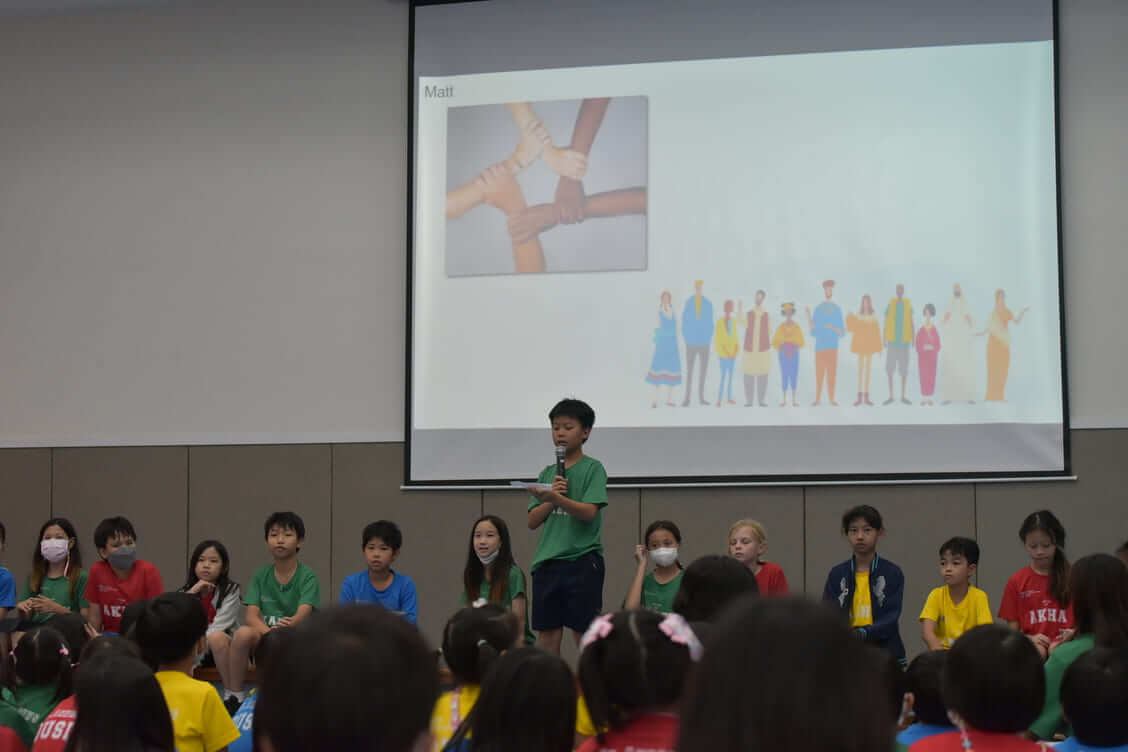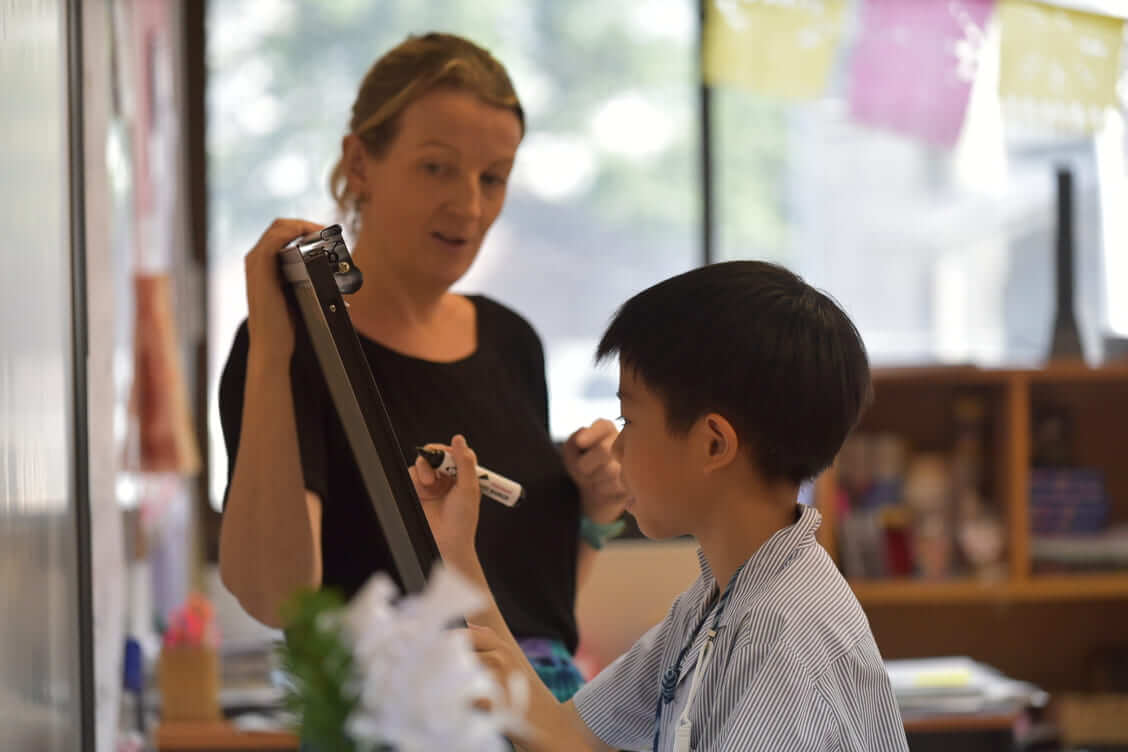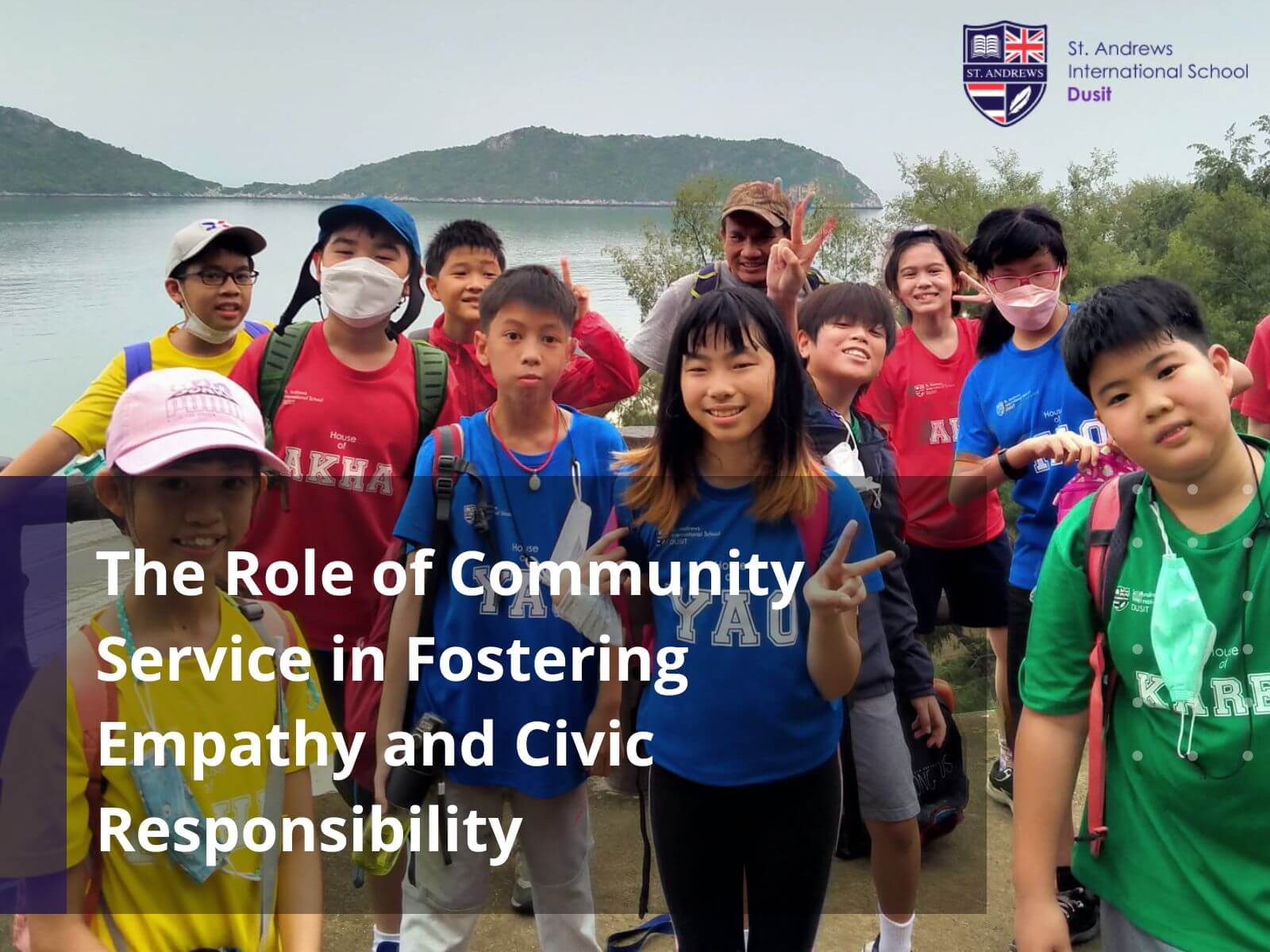At St. Andrews Dusit British International School in Bangkok, we prepare children for a bright future as contributing members of society by tapping into their full potential early on using a holistic approach to education.
In turn, St. Andrews Dusit also understands the value of community service in fostering civic responsibility and empathy among our young learners aged 2 to 11 years old.
We’ve designed our curriculum to make them fully developed leaders of tomorrow by tapping into their socio-emotional, academic, and physical capabilities so that no single aspect of themselves is neglected.
Even during primary school, it doesn’t hurt to teach these youths the importance of working cooperatively through outreach and community service for the betterment of society as a whole.
How Schools Can Foster Empathy with Community Service
To demonstrate the impact of a holistic learning system on children’s optimal development, St. Andrews Dusit includes lessons on civic responsibility and application of community service in the curriculum for the young minds entrusted to our care.
Everything we do here in our international school is informed and shaped by our holistic approach to education, especially when it comes to the foundational education of primary school children.
For us, this is as valuable to them as building mental health awareness, developing socio-emotional skills, and indulging in co-curricular/extra-curricular activities to cover every aspect of their potential as contributing members of society.
“The healthiness of a community depends on the civic service of the youth because the baton of responsibility will always be passed to the next generation of any given society.” (Teacher Quote)
We encourage our young learners to do acts of charity and community service that can be as simple as clean-up of school grounds or as complex as an outreach programme for the indigent to teach them about their duties as society members.
Unpaid volunteers can actually serve as the glue to hold the community together, and this civic responsibility to give back to society must be instilled in every child.
The Benefits of Community Service among Youth

The holistic development of the children of St. Andrews Dusit covers every aspect of their development, which includes their intellectual, mental, physical, social, emotional, extracurricular, co-curricular, and academic skills.
For St. Andrews to truly deliver holistic development, the empathic side of these young ones must also be covered during their scholastic stay in our international school.
The children will be taught the importance of volunteer work so that they can discover for themselves how to connect to the community and do things for its betterment.
It starts by lending a helping hand in the smallest tasks throughout the school and beyond it, like tending to a garden, cleaning up after themselves, or helping a book donation drive by sending used books to the indigent.
Their voluntary participation in reach-out programmes can make a huge difference in the lives of the community around them, animals, and even organisations in need of assistance.
They can apply what they’ve learned in school about socialising and cooperation in the real world by fulfilling or at least becoming aware of their civic responsibility at a young age,
Volunteering and Community Service Helps Widen Your Social Horizons
Volunteering with community service is a two-way street for the children—it can benefit them and their family as contributing members of society while at the same time helping those in need who are also part of that very society.
Community service is also beneficial to the youth because they help them make new friends, expand their (non-online) social network, and boost their social skills.
Our teachers will guide the children in safely dedicating their time for whichever community service programme is available, even if it’s something as simple as cleaning up the school campus or the nearest parks and community centres.
The children can also use community service such as planting new trees or doing some gardening on empty lots to strengthen their relationship with each other through a shared activity.
There are numerous campuses, companies, and non-profit organisations (NGOs) in need of age-appropriate community service and volunteer work. Who would turn down free labour for the good of the community?
This type of work assists the children early on to strengthen their bonds with society while broadening their support network by familiarising themselves with other members of society.
Instil a Sense of Civic Responsibility in Children by Giving Them a Sense of Societal Belonging

The surest way to instil a sense of civic responsibility among people, even young children in primary school, is by making them feel that they’re part of society at large.
If they feel like they contribute to the well-being of society then they’ll feel more responsible for ensuring its well-being. Even children from ages 2 to 11 can figure out for themselves what society is by practical acts and interactions rather than by words and descriptions.
Community service also helps expose the youth to people with common interests, other schools doing community service themselves, neighbourhood resources, other older volunteers, and so forth.
St. Andrews teachers will also help the children interact with various NGOs and community centre staff, thus making it safe for them to meet with new people through school-sponsored community service as part of their holistic curriculum.
A child will feel more responsible about society and realise their civic duty to it by better understanding their impact on it and how to contribute to its well-being in their way.
Speaking of which, monitored community service and charitable acts can help even the most introverted or timid child improve their ability to interact with other people despite not being naturally outgoing.
Imparting a Feeling of Family with Cooperative Community Service
Doing your part to help improve the community and society at large is a great way for the children of St. Andrews Dusit to develop their social skills. Socialisation shouldn’t be limited to the confines of the school, after all.
Aside from increasing your friends and contacts from beyond the walls of the St. Andrews Dusit International School, the youths can also do community service as a family.
They can learn how to coordinate schedules with their teachers at the best time to do their civic responsibility in the form of community work.
The younger children can watch the older children lead by example on how to properly do the volunteer work, whether it’s picking up litter, sweeping the school grounds, helping move furniture, or painting murals on the walls to prevent vandalism.
The teachers and other staff monitoring the community service can, in turn, instruct the children on what to do and observe how well they understand the instructions.
Community service involving charitable donations of clothes, groceries, or books are particularly helpful in showing the children firsthand how to make a difference in society that’s beneficial and fulfilling.
When All Is Said and Done

It is our mission here at St. Andrews Dusit to help young learners realise their full potential through holistic learning, which includes even charitable community service as part of their civic responsibility to the community at large.
This can instil in them the values of caring for the needs of their family, town, city, and/or nation as they grow up from childhood to fully realised adulthood.
St. Andrews Dusit International School is a proud member of the esteemed Cognita School Group. Cognita is an international organisation responsible for the management of schools throughout Asia, Europe, and the Americas.
Make an appointment at St. Andrews Dusit today to avail of our campus school tour and have a better idea of the type of education we offer. Alternatively, you may also opt to go to our website and book a personalised virtual campus tour, if that is more convenient for you.



